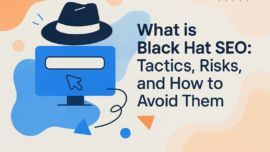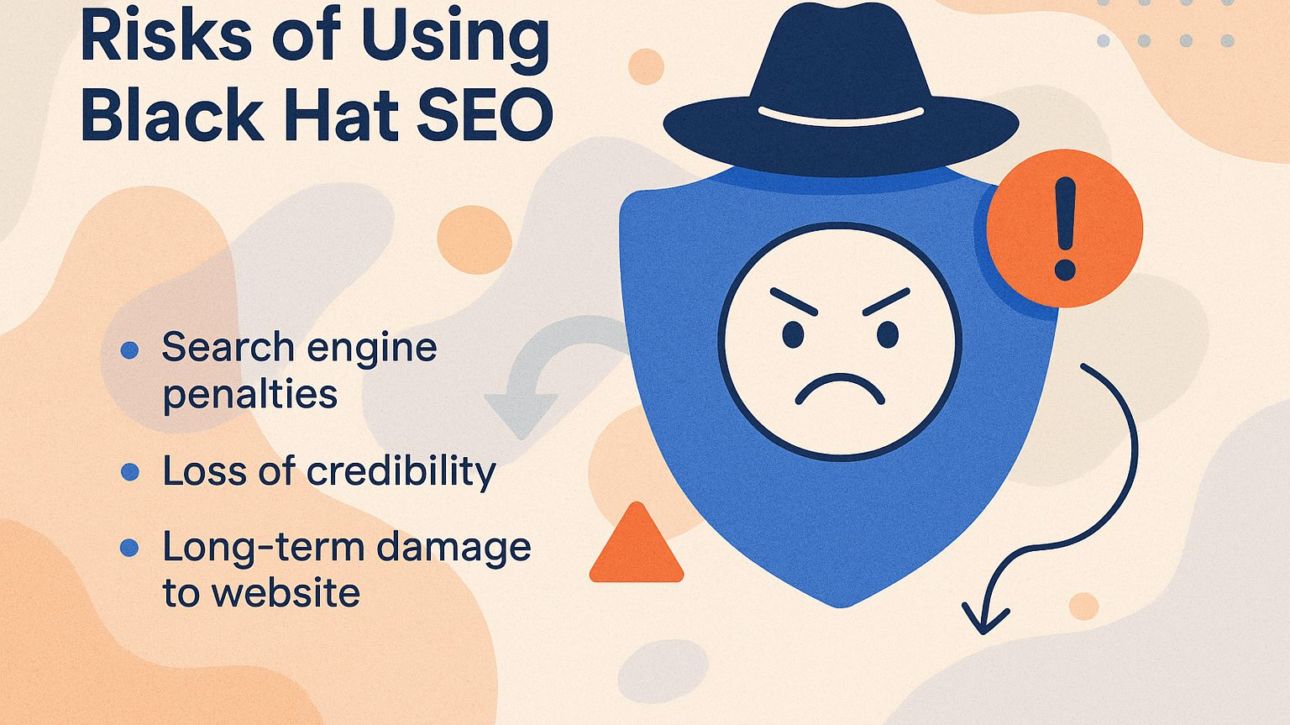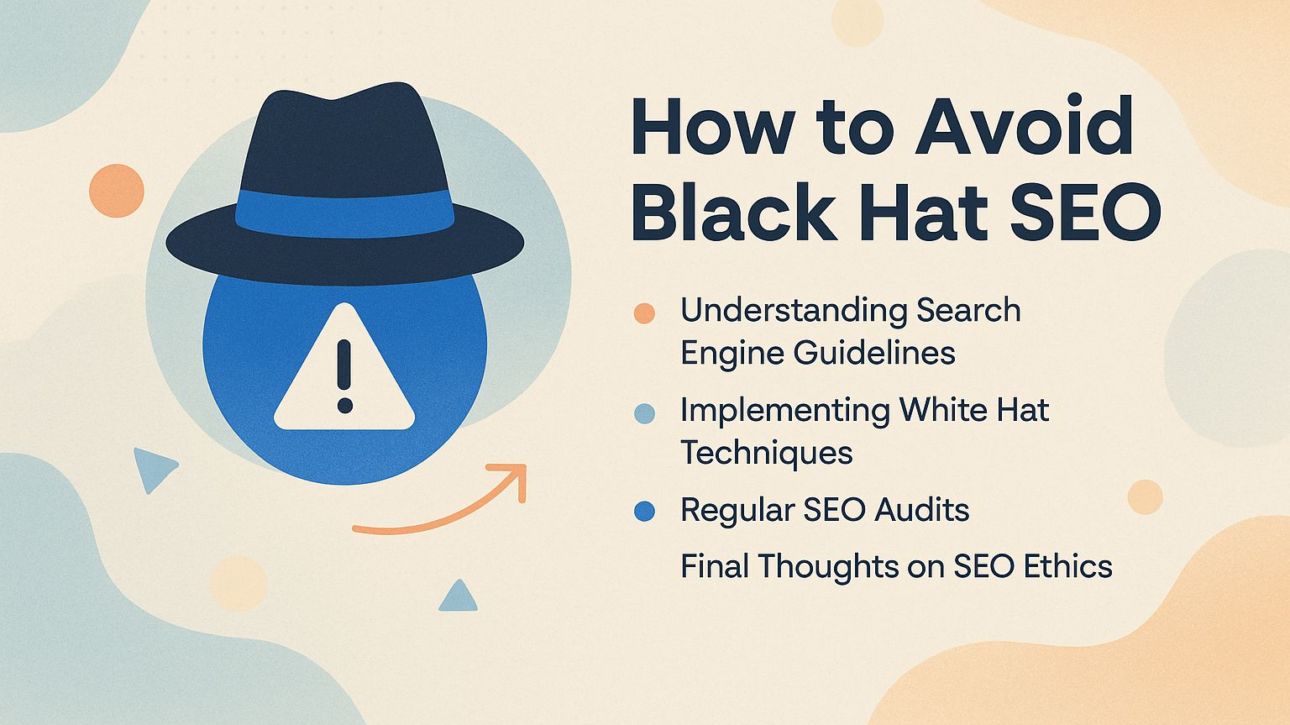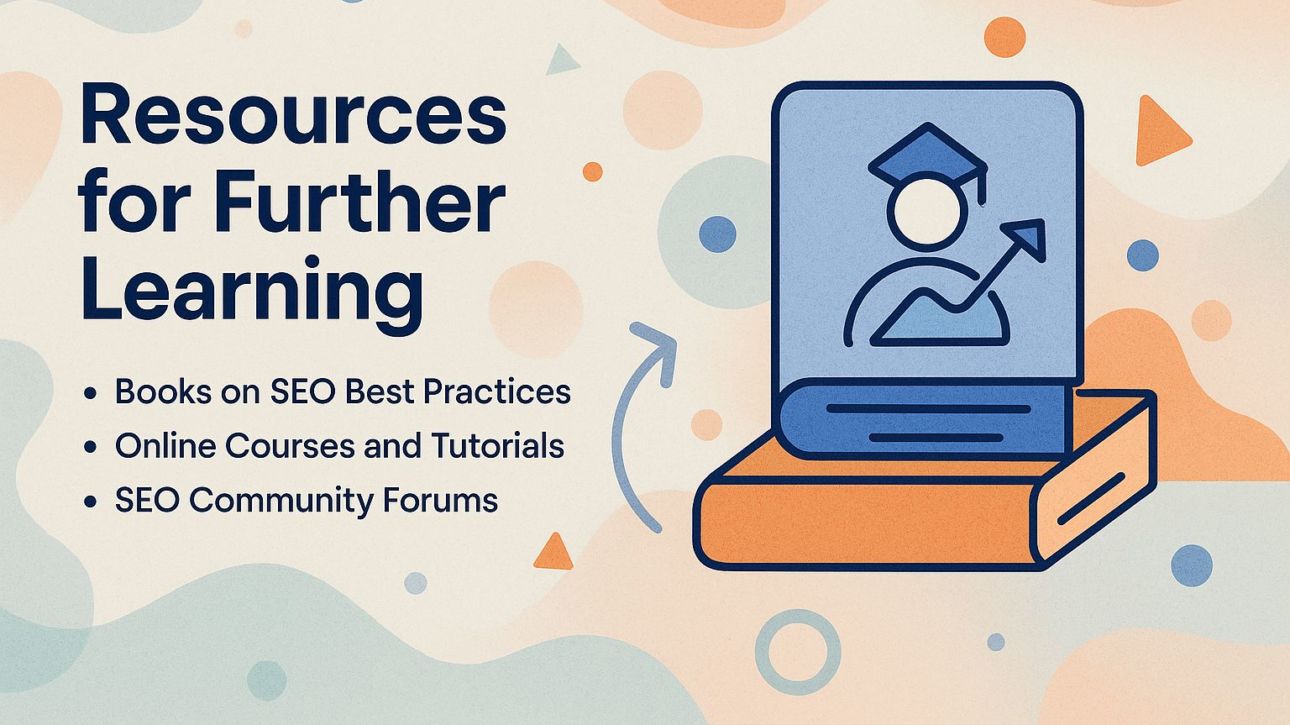Using black hat SEO might look appealing, but it can harm your site’s ranking on Google. This article explains misleading techniques such as keyword stuffing and hidden text, as well as the risks they bring to your search engine ranking efforts. We’ll look into how using Private Blog Networks (PBNs) can harm your credibility. Learn how to avoid these mistakes to keep your SEO plan honest and successful.
Key Takeaways:
- Black Hat SEO involves unethical tactics to manipulate search engine rankings, risking penalties and damage to the website.
- Some common Black Hat SEO tactics include keyword stuffing, hidden text and links, and content scraping.
- To avoid Black Hat SEO, you should know search engine rules, use honest SEO methods, and check your SEO often.
Contents
1. Definition of Black Hat SEO
Black Hat SEO encompasses tactics that violate search engine guidelines, focusing on short-term gains through manipulation rather than quality content.
Some unethical SEO methods include cloaking, where search engines view different material than what visitors see, and keyword stuffing, which involves repeated use of keywords to unfairly increase rankings.
Google frequently updates its algorithms to combat these practices; for instance, the Panda update specifically targeted sites with low-quality, spammy content. Using these methods can result in serious consequences, such as being completely removed from search engine results.
To achieve lasting growth, concentrate on ethical SEO methods such as thorough keyword research and building high-quality links.
2. Difference Between Black Hat and White Hat SEO
The key difference between Black Hat and White Hat SEO lies in their adherence to search engine guidelines, impacting long-term website viability.
White Hat SEO uses honest methods like selecting appropriate keywords, organizing website layout, and producing excellent content to increase search visibility.
However, techniques like keyword stuffing, cloaking, and link farming may lead to fast gains but can also result in serious consequences, like being taken out of search listings.
For instance, Google’s Penguin algorithm targets spammy link profiles, resulting in a potential 90% drop in organic traffic. Businesses should focus on ethical strategies to achieve long-term growth and build trust with users and search engines.
Common Black Hat SEO Tactics
Using certain unethical SEO methods can damage a website’s reputation and lead to penalties from search engines if found. To truly understand these risks, consider exploring the concept of negative SEO and its potential impacts on your site.
1. Keyword Stuffing
Keyword stuffing involves overloading web content with keywords, compromising readability and often leading to penalties from search engines.
For example, if an article uses a certain word more than 5% of the time, it might interrupt the flow of the text and annoy readers. Google’s algorithm may flag such content as spammy, leading to lower search rankings or removal from search results altogether.
To maintain optimal keyword density, aim for 1-2%. This can be done by including keywords smoothly in your content, using similar words, and concentrating on providing useful and complete information. Tools like Yoast SEO can help analyze your keyword usage in real-time.
2. Hidden Text and Links
Hidden text and links trick search engines by displaying content only to crawlers while preventing users from seeing it, violating Google guidelines.
Use clear and honest content methods to improve SEO in a fair way, instead of relying on unseen text. For example, improve your content by including relevant keywords naturally in your text.
Use tools like Yoast SEO for WordPress to analyze your content’s readability and keyword density. Implementing structured data can also improve your visibility; tools like Google’s Structured Data Markup Helper simplify this process.
By using these methods, you follow search engine rules and create a better experience for users, which helps build trust with your audience.
3. Link Farming
Link farming creates networks of mutually beneficial backlinks that can appear legitimate but often lead to penalties from search engines.
A prime example is the case of a once-prominent site, XYZ.com, which was penalized for participating in a link farm. After Google’s algorithm update, they lost significant rankings due to manipulative practices.
Using ethical backlink strategies, like writing guest posts for well-regarded websites, builds trust. Using platforms like HARO (Help a Reporter Out) can connect you with journalists looking for expert advice, leading to natural links.
Prioritize building relationships with industry influencers and creating quality content that naturally attracts backlinks for long-term success.
4. Content Scraping
Content scraping involves copying content from other websites, which can lead to duplicate content issues and significant SEO penalties.
Search engines like Google may penalize sites for scraping, resulting in reduced visibility. For instance, a well-known restaurant review site faced a 40% traffic drop after being flagged for duplicating content from competitor sites.
Instead of scraping, focus on creating original content by:
- Conducting interviews
- Leveraging user-generated content
- Writing reviews based on firsthand experiences
Tools like BuzzSumo help you identify trending topics. This can make your content relevant and unique, boosting your website’s credibility and visibility in search results.
5. Duplicate Content
Duplicate content misleads search engines regarding the original source, risking ranking penalties and reduced visibility in search results. To address duplicate content problems, use tools like Copyscape to find matching content on your web pages.
For example, suppose you run a blog and accidentally publish similar posts on overlapping topics; Copyscape can pinpoint these discrepancies.
To avoid penalties, concentrate on producing unique content by doing detailed research and sharing original ideas or viewpoints.
Consider using canonical tags to indicate your preferred versions of pages. Checking your content regularly helps keep it up-to-date and original, which improves your site’s search ranking.
6. Doorway Pages
Doorway pages are designed solely to rank for specific keywords and funnel traffic to a target page, but they often frustrate users and violate search guidelines. These pages create a poor user experience by offering minimal content and leading visitors to unrelated sites.
Focus on creating genuine landing pages that provide helpful information or services instead of doorway pages. For example, if you’re focusing on ‘best hiking trails,’ create a detailed guide that lists trails, includes maps, photos, and user reviews.
Use tools like Google Analytics to track engagement and identify areas for improvement, ensuring your landing pages are both informative and user-friendly.
Risks of Using Black Hat SEO
Using dishonest SEO methods can lead to serious problems for websites, such as punishment from search engines and lasting harm to their online reputation. If you’re interested in ethical strategies, our guide to White Hat SEO techniques offers valuable insights for maintaining compliance and building a positive online presence.
1. Search Engine Penalties
Search engine penalties can result in decreased rankings or complete removal from search results, often triggered by black hat tactics. These penalties fall into two main categories: manual and algorithmic.
Manual penalties are imposed by a human reviewer who identifies policy violations, as seen with sites like JCPenney during their over-optimization issues.
Algorithmic penalties, on the other hand, are automatically triggered by algorithm updates, such as Google’s Panda update, which affected content quality.
To recover, affected sites should:
- Audit their content for violations,
- Disavow harmful backlinks,
- Improve user experience by enhancing site speed and mobile friendliness.
Regularly updating content can help regain credibility and rankings.
2. Loss of Credibility
Utilizing black hat techniques can lead to a permanent loss of credibility among users, which can be detrimental to long-term business success.
For instance, practices like keyword stuffing or purchasing backlinks might yield short-term rankings but can result in penalties from search engines. When people notice deceptive strategies, they often lose trust in the company, which can result in less interaction.
Using ethical SEO methods, like creating good content and openly interacting, builds trust. You can improve this by clearly explaining your optimization plans. This builds strong, lasting connections with your audience and improves your reputation in the online market.
3. Long-term Damage to Website
The long-term damage from black hat SEO practices can take years to recover from, often resulting in irreparable harm to website traffic and authority.
In 2006, BMW faced a temporary ban from Google for using doorway pages, showing how serious the penalties can be.
Recovery strategies involve doing a detailed review to find harmful links using tools like Ahrefs, then rejecting unwanted backlinks.
Creating good content is important; try concentrating on informative blog posts and interviews with experts to restore trust. Engage in transparent outreach to earn organic links. This approach can gradually rebuild trust and improve search rankings over time.
How to Avoid Black Hat SEO
To stay away from unethical SEO, stick to honest methods that match search engine rules for long-term online success. For an extensive analysis of ethical strategies, our deep dive into navigating agentic SEO for executive leaders provides valuable insights and strategies.
1. Understanding Search Engine Guidelines
Familiarizing oneself with search engine guidelines, such as Google’s Search Essentials, is fundamental to avoiding black hat techniques.
To follow the rules, begin by checking the main points in the guidelines. Focus on these areas:
- Creating valuable content
- Avoiding deceptive practices
- Ensuring mobile-friendliness
For instance, regularly audit your website’s mobile usability via Google’s Mobile-Friendly Test tool. Tools like Google Search Console can help monitor your site’s performance and identify any issues.
For more detailed information, check out the Google Search Central Blog for the latest news and tips on best practices.
2. Implementing White Hat Techniques
Adopting white hat SEO techniques focuses on user experience and content quality, cultivating a trustworthy online presence.
To implement these techniques effectively, start with quality content creation by researching relevant keywords using tools like SEMrush or Ahrefs, ensuring your articles address user queries.
Next, focus on ethical backlinking through guest blogging on reputable sites or collaborating with influencers in your niche. Make your site user-friendly by ensuring it works well on mobile devices. Use tools like Google’s Mobile-Friendly Test to help with this.
Maintain transparency in advertising by clearly labeling sponsored content, and keep your site fresh by regularly updating it with new information aligned with current user interests. These methods build trust and raise your site’s position in search results.
3. Regular SEO Audits
Regularly checking SEO helps find weaknesses and keeps up with current search engine rules.
Begin by utilizing tools like SEMrush or Ahrefs to analyze your website’s performance. Focus on key elements such as site speed, ensuring it loads under three seconds; evaluate backlink quality, targeting a minimum Domain Authority of 30; and assess content relevance by checking keyword optimization across your pages.
Create a checklist that includes examining:
- meta tags
- URL structure
- mobile usability
This detailed method finds problems and improves your site for higher search rankings, which leads to more natural visitors.
4. Final Thoughts on SEO Ethics
Focusing on SEO ethics improves user experiences and leads to lasting growth, building trust with both search engines and users.
Using ethical SEO methods can greatly improve your visibility.
- Start by creating high-quality, original content that addresses user needs.
- Use tools like Yoast SEO to improve on-page elements such as meta descriptions and headings.
- Focus on building backlinks through genuine relationships, rather than buying links, by guest posting on reputable sites.
For example, Moz’s Beginner’s Guide to SEO emphasizes the importance of transparency and quality.
Over time, these strategies improve your rankings and help build long-term bonds with your audience.
Resources for Further Learning
It’s important to have good resources to stay informed about the best SEO methods and to avoid the risks of black hat SEO. One of our most insightful case studies delves into white hat techniques that ensure compliance and long-term success.
1. Books on SEO Best Practices
Books like ‘The Art of SEO’ and ‘SEO 2023’ offer useful information about recommended methods and honest approaches in the changing field of search engine optimization.
To deepen your SEO knowledge, consider these additional resources:
- ‘SEO for Dummies’ offers an easy-to-follow guide, perfect for beginners learning the basics.
- ‘The SEO Blueprint’ dives into actionable strategies for increasing organic traffic, emphasizing real-world applications.
- ‘They Ask, You Answer’ by Marcus Sheridan shows that addressing customer questions can increase website visits and improve interaction.
Each book gives practical tips and examples, making them helpful for anyone involved in SEO. Find these books on sites like Amazon or at your local library to expand your knowledge.
2. Online Courses and Tutorials
Enrolling in courses on websites like Coursera or Udemy can help you learn about ethical SEO methods and current trends.
For beginners, the ‘SEO Fundamentals’ course on Coursera provides an excellent introduction, covering keyword research and basic on-page optimization.
Intermediate learners might benefit from Udemy’s ‘SEO Training Course by Moz’, which dives deeper into analytics and link building strategies.
The ‘Technical SEO Course’ on Coursera helps experienced users address site performance problems and improve mobile optimization. These courses typically range from $39 to $199, offering flexible schedules and hands-on projects to solidify your learning.
3. SEO Community Forums
Participating in SEO community forums like Moz and Reddit can give helpful advice and support from peers for handling SEO problems. Plus Moz and Reddit, consider participating in the Warrior Forum and Digital Point.
Warrior Forum is made for online marketers, providing talks on topics like SEO methods and copywriting tips. Digital Point contains sections aimed at webmasters and SEO.
Each platform creates a helpful space where members exchange experiences, tools, and advice. Frequently visiting these forums and joining in the conversations can greatly improve your SEO knowledge and help you keep up with the newest trends in the industry.
Frequently Asked Questions
1. What is Black Hat SEO?
Black Hat SEO involves using dishonest methods to boost a website’s position in search engine results. These tactics violate search engine guidelines and can result in penalties or even getting banned from search results.
2. What are some common Black Hat SEO tactics?
Some examples of Black Hat SEO methods are overusing keywords, invisible text, buying links, and showing different content to search engines than to users. These methods try to unfairly change a website’s search engine position without giving useful content to users.
3. What are the risks of using Black Hat SEO?
The risks of using Black Hat SEO include penalties from search engines, such as a drop in ranking or complete removal from search results. This can greatly affect a website’s visibility and visitor numbers, eventually damaging the business’s online image and standing.
4. How can I avoid Black Hat SEO tactics?
The best way to avoid Black Hat SEO tactics is to focus on creating high-quality, relevant content for your website. Keep up with search engine rules and don’t use methods that violate them. It’s also important to be cautious of any SEO services that promise quick and easy results.
5. Why should I stick to White Hat SEO instead?
White Hat SEO means using honest and proper methods to increase a website’s position on search engines. Although it might take more time to see outcomes, White Hat SEO makes sure a website offers useful and related information to users, which leads to lasting success and a good online reputation.
6. Can Black Hat SEO ever be beneficial?
Using Black Hat SEO for quick results is always a bad idea. It breaks search engine rules and can harm your website’s reputation and trustworthiness. It’s always best to stick to ethical and legitimate SEO practices for long-term success.





